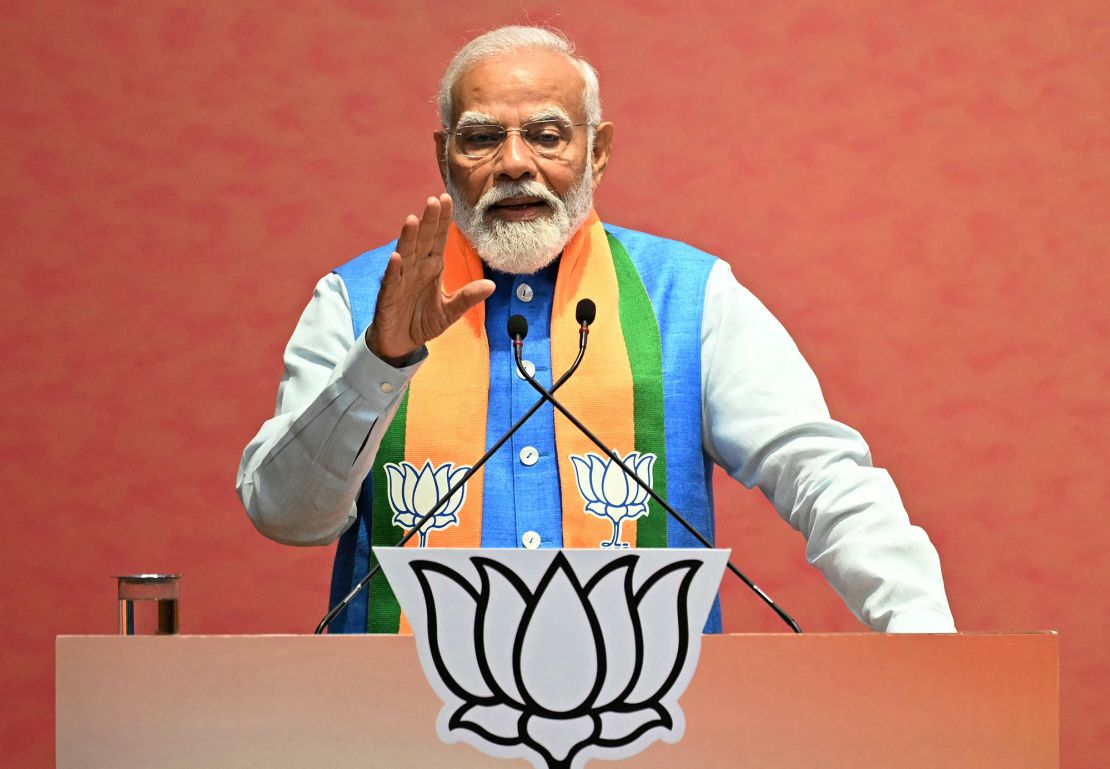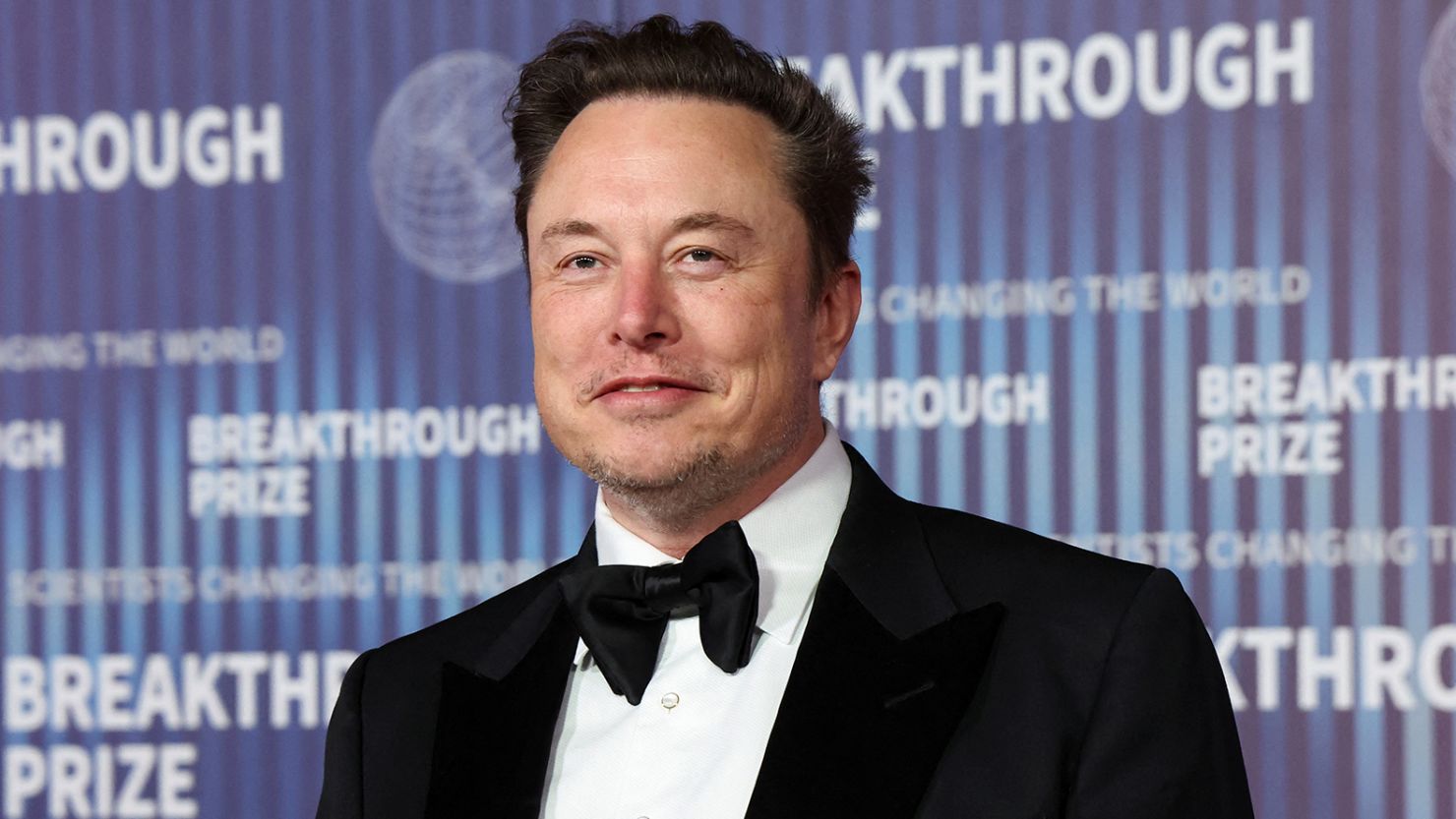Tesla may be close to unlocking a massive new market.
CEO Elon Musk is due to arrive in India next week for a visit that is expected to include a meeting with Prime Minister Narendra Modi and confirmation that Tesla plans to build a factory in the world’s most populous country.
Musk posted last week on X that he is “looking forward” to meeting Modi. The billionaire did not mention a date, but Indian media and Reuters reported, citing unnamed sources, that he is expected to meet the Indian leader next week in New Delhi.
He is also planning to meet Indian space tech startups during his visit. Pawan Chandana, co-founder of Skyroot Aerospace, which launched India’s first privately developed rocket in 2022, told CNN he will be meeting Musk on Monday. Apart from Tesla (TSLA), Musk is also the boss of rocket company SpaceX and X, formerly Twitter.
Currently the world’s fourth richest man, Musk is likely to announce an investment of $2 billion to $3 billion in the South Asian country, mainly for building the new Tesla factory, Reuters and Financial Times reported, citing anonymous sources.
A Musk-Modi meeting next week would come just days after India commenced the world’s largest democratic election. An estimated 960 million people in the country of 1.4 billion are eligible to vote in the polls, which started on Friday and will take more than a month to complete. Modi is widely expected to clinch a rare third consecutive five-year term as prime minister.
“In the last ten years we have made significant progress in the manufacturing sector,” Modi’s Bharatiya Janata Party (BJP) said in its election manifesto this week.
Tesla opened its first Asian factory in 2019 in Shanghai, and it now produces hundreds of thousands of cars for the vast Chinese market and for export. If the investment in India is announced, it would be a boost to Modi’s efforts to make India a major global manufacturing hub.

“We will make Bharat a trusted global manufacturing hub through a series of programmes including simplification of regulatory processes, investment in infrastructure … bringing capital to the industry and investing in research and development,” it said. Bharat is the Sanskrit or Hindi name for India.
The Modi government is aggressively trying to capitalize on the rethink underway among global companies on supply chains.
Executives are trying to diversify operations beyond China, where they faced obstacles during the pandemic and are threatened by rising tension between Beijing and Washington. As a result, some of the world’s biggest companies, including Apple (AAPL) supplier Foxconn, are expanding their operations significantly in India.
Apart from consumer electronics, Modi’s party also wants to promote manufacturing in areas including semiconductors and electric vehicles (EV).
“We will support the growth of the automobile industry and its transition to EV manufacturing,” the manifesto said. “We will invest in establishing a nationwide EV charger infrastructure to encourage EV adoption.”
A ‘natural progression’ for Tesla
Tesla’s entry into the world’s fastest growing major economy would be a win for Musk as well.
Even though EVs comprise less than 1% of total vehicle sales in India, it should be an attractive destination in the coming years for Tesla, which is struggling with waning enthusiasm in major markets.
In the United States, overall electric vehicle sales have flattened out in recent months. China, the world’s largest EV market, is also losing momentum as a result of market saturation and a slowing economy.
According to reports earlier this month, Tesla is cutting more than 10% of its global staff of 140,000 over “cost reductions and increasing productivity.”
The development comes just after the company reported a year-over-year decline in sales in the first three months of this year, its first such drop since the height of the pandemic four years ago.
In the fourth quarter of 2023, Tesla briefly lost its crown as the leader in global EV sales to Chinese automaker BYD. It recaptured the EV sales title from BYD in the first quarter, despite the drop in sales.
As ‘soon as humanly possible’
While demand for EVs has softened in other economies, India aims to have 30% of all private car sales be electric by 2030.
Last year, Musk said his company is looking to invest in India “as soon as humanly possible,” following a meeting with Modi in New York.
The billionaire reiterated his ambitions to make it in the South Asian nation earlier this month, when he said in an X Spaces livestream interview that it is a “natural progression to provide Tesla electric vehicles in India.”
Musk’s push into the Indian market has been in the works for years.
In 2017, he said Tesla was planning to sell cars in India as soon as that summer. But the plan was delayed because of the company’s efforts to negotiate lower import duties with the Indian government.
Musk tweeted in 2021 that Tesla wanted to enter India, “but import duties are the highest in the world by far of any large country.”
Tesla had sought to slash the duties, but the Indian government wanted the company to make cars locally before considering any tax breaks.
The Modi government has now removed some of those impediments in an effort to make India a manufacturing hub for electric vehicles.
Last month, it announced a new policy lowering taxes on some electric cars made by global automakers, if the manufacturer invests at least half a billion dollars in the country and sets up a local plant.
India isn’t the only Asian nation where Tesla has plans. The company is also in talks with the Thai government to build a production facility in the country.
Tesla did not respond to a request for comment.
CNN’s Kunal Sehgal and Clare Duffy contributed to this report.








